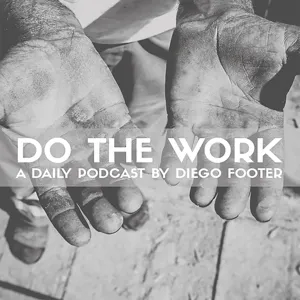Podcast Summary
The Complexity of Challenging the US Dollar's Global Reserve Currency Status: Despite incentives to reduce reliance on the US dollar, viable alternatives lack the necessary economic strength, financial assets, and current account surpluses to challenge its global dominance.
The US dollar's dominance as a global reserve currency is a complex issue with no clear alternative in sight. While some countries, like China, may have incentives to reduce their reliance on the dollar, the lack of viable alternatives makes a significant shift challenging. To become a meaningful global reserve currency, a country would need a strong economy, sufficient financial assets, and a current account surplus. Kartik Shankaran, a seasoned FX expert, will join us in an upcoming episode to further discuss this topic and provide insights into what it might take for another currency to challenge the dollar's global dominance. Stay tuned for more insights on the Odd Lots podcast.
Creeping regional displacement of US dollar: Europe's euro and China's renminbi are making strides towards displacing the US dollar in regional contexts, but full internationalization remains a challenge for both currencies, with China focusing on exporting capital and running large external surpluses instead.
While there have been discussions about countries moving away from using the US dollar and exploring alternatives like the renminbi, the process of replacement is unlikely and instead, we may see creeping regional displacement. The euro has already shown this trend in Europe, and the renminbi is still far behind in terms of internationalization. China, as an export-driven economy, may not necessarily want to have a different economic model that requires running deficits to be at the center of the monetary system. Instead, they can find other ways to get their currency out into the world, such as running large external surpluses and exporting capital. China still faces challenges in making its financial markets more accessible to issue renminbi in large sizes, making it a long way from achieving full internationalization.
Issuing Renminbi Debt: Opportunities and Challenges for Brazil: Brazil could benefit from issuing renminbi debt due to China's influence on its business cycle, but faces challenges like deciding which market to issue in, dealing with interest rate fluctuations, and hedging risks in the less developed renminbi futures markets.
For countries like Brazil, issuing renminbi denominated debt could be beneficial, especially if their business cycles are heavily influenced by China. However, there are challenges to this, such as deciding which renminbi market to issue in, dealing with interest rate fluctuations, and the opacity of the Chinese domestic debt market. Brazil might face difficulties issuing onshore due to the excitable behavior of Chinese investors and the lack of transparency in the issuers' finances. On the other hand, offshore issuance comes with the risk of interest rate hikes in the offshore currency, which could negatively impact borrowers. Additionally, renminbi financial futures markets are not as developed as those for the US dollar, making hedging more challenging. Ultimately, the multipolar financial system, which includes the use of various currencies, could help countries reduce their reliance on the US dollar and the potential risks associated with it. However, the complexities of issuing renminbi debt make it a difficult proposition for many countries.
China's capital controls limit renminbi internationalization: China's reluctance to loosen capital controls hinders the international use and issuance of the renminbi, limiting its potential as a global currency.
China's capital controls significantly hinder the internationalization of the renminbi. While China has expressed a desire to have a more international currency, the country's reluctance to relinquish control over its currency and financial system suggests that it may not prioritize this goal highly. Capital controls create disincentives for issuing and using the offshore renminbi due to limited hedging options in smaller markets. Japan faced similar pressures decades ago regarding the internationalization of the yen, and China may also be hesitant to make the necessary trade-offs. However, building a stronger social safety net could help reduce excess savings and retool the economy, potentially making RMB internationalization a more viable option. Ultimately, China's progress towards an international currency will depend on its willingness to loosen capital controls and adapt its economic model.
China's internal convergence and financial stability require increasing middle income population and expanding social safety net: To address China's regional disparities and financial instability, the country needs to focus on growing its middle income population and expanding its social safety net, reducing excess savings and underfunded local government mandates.
For China to achieve internal convergence between its coastal and interior regions, as well as financial stability, it needs to increase its middle income population and provide a larger social safety net. This would help reduce excess savings and underfunded local government mandates. China's lack of a significant social safety net, despite being a socialist country, contributes to this issue. In the US, the debate continues on whether the dollar's strength is a burden, but the speaker argues that the benefits of low interest rates outweigh the potential drawbacks. The US should use its ability to issue currency to invest in essential infrastructure instead of solely focusing on household spending. While the correlation between dollar centrality and dollar strength is not always true, the US has the opportunity to use its financial position to improve its infrastructure and boost economic growth.
The strength of the US dollar is influenced by various factors beyond just demand for US assets as safety: The US dollar's role as a global currency impacts financial stability of other countries, particularly those heavily indebted in dollars, and its value is influenced by factors such as US interest rates, terms of trade shocks, and perceived technological productivity.
The strength of the US dollar is not solely determined by the demand for US assets as safety. Instead, it is influenced by factors such as US interest rates, terms of trade shocks, and perceived technological productivity mirrors. However, the dollar's central role in the global economy can also create financial stability issues for other countries, particularly those heavily indebted in dollars. The financial cycles of hub economies like Germany and the EU, which use the euro as their currency, can coincide with the real economy, causing the euro to weaken and increasing financial instability when the economy slows. The liability aspect of the dollar's role as a cross-border liability currency is crucial, and many people may not be willing to take on debt denominated in this currency. The excitement about countries doing trade in dollars should be viewed in the context of economic comparisons between stocks and flows, with a focus on the stock of debt rather than just the invoicing.
Suggesting SDRs as a super currency to replace US dollar's dominance: China's past objections to SDRs and uncertain costs of domestic consumption reorientation make a practical alternative to a multipolar currency reserve system questionable.
The idea of using Special Drawing Rights (SDRs) as a super currency to replace the dominant role of the US dollar in international reserves has been suggested as a potential solution to the issue of currency wars and the potential losses for countries, particularly China, in a shift towards more domestic consumption. However, the viability of this solution is questionable, as China's past objections to SDRs stemmed from the depreciation of the value of its reserves due to US quantitative easing and rising commodity prices. The use of SDRs might not be a practical alternative to a multipolar currency reserve system. Additionally, the potential costs of a domestic reorientation towards household consumption in China are uncertain, but the Chinese leadership places a high value on output legitimacy, which could influence their decision-making in this regard.
Navigating opposition to maintain legitimacy in China: China's leadership aims to improve people's lives to maintain legitimacy, but success depends on managing opposition. A potential step towards internationalizing the renminbi is converting dollar debt in BRI to renminbi, reducing financial cycle mismatches and increasing renminbi use in trade.
China's leadership aspires to continue delivering improvements to people's lives to maintain legitimacy, but the success of this goal depends on their ability to navigate opposition from non-leadership forces. Regarding the internationalization of the renminbi, a potential first step could be gradually converting dollar-denominated debt in China's Belt and Road Initiative (BRI) into renminbi. This could help reduce financial cycle mismatches and potentially increase the use of the renminbi in international trade. However, challenges such as capital controls and the structure of Chinese financial markets may make this process difficult. Additionally, Argentina's decision to invoice trade with China in renminbi is not necessarily a significant shift towards renminbi use, as Argentina may be more focused on holding onto its dollars.
China gradually changing liability structure through BRI but slowly: China pays workers in RMB, essential for someone to absorb, but unclear why not denominate BRI loans in RMB
China is gradually changing its liability structure through its Belt and Road Initiative (BRI), but at a very slow pace. Countries like Laos and Cambodia are potential recipients of this initiative, and some countries with large dollar reserves, such as Brazil or Saudi Arabia, might consider acquiring RMB-denominated debt as a way to diversify their portfolios and hedge against potential economic instability in commodity-exporting countries. The advantage of the US dollar's centrality in the global financial system is that it provides lower inflation pass-through when the currency weakens, making it an attractive destination for exporters. China, as the world's largest manufacturing exporter, pays its workers in renminbi, making it essential for someone to absorb these renminbi. However, the reasons why China did not denominate BRI loans in renminbi are unclear, but it may have been due to the large amount of dollars China had accumulated.
The future role of the renminbi as a global currency: A more multipolar currency world could lead to fewer mismatches and less procyclicality, but transitioning to a renminbi-dominated system might take a long time due to economic and historical factors.
The economic relationship between the US and China, as the world's largest bilateral trader, raises questions about the future role of the renminbi as a global currency. Karthik Sankaran, a finance professor, discussed on Odd Lots how the economic and dollar cycles are interconnected issues around the world. He suggested that a more multipolar currency world could lead to fewer mismatches and less procyclicality in the system. However, transitioning to a renminbi-dominated system might take a long time due to the stock-versus-flow argument. The conversation also hinted at the need for further discussions on China's social safety net and inviting experts like Brad Setzer and Gita Gopinath to discuss these topics in depth. Overall, the episode emphasized the complexities and potential implications of the global economic landscape.
Bloomberg launches new podcast 'Money Stuff': Bloomberg introduces a new podcast, Money Stuff, hosted by Matt Levine and Katie Greifeld, bringing their finance newsletter content to life weekly on various podcast platforms.
Bloomberg is launching a new podcast called Money Stuff, hosted by Matt Levine and Katie Greifeld. Levine is known for his popular Wall Street finance newsletter, and now he and Greifeld will be bringing that content to life every Friday through the podcast. Listeners can tune in on Apple Podcasts, Spotify, or wherever they get their podcasts. This collaboration between two well-respected Bloomberg media personalities promises to deliver insightful discussions on finance and other related topics, making it a must-listen for anyone interested in the world of money.






